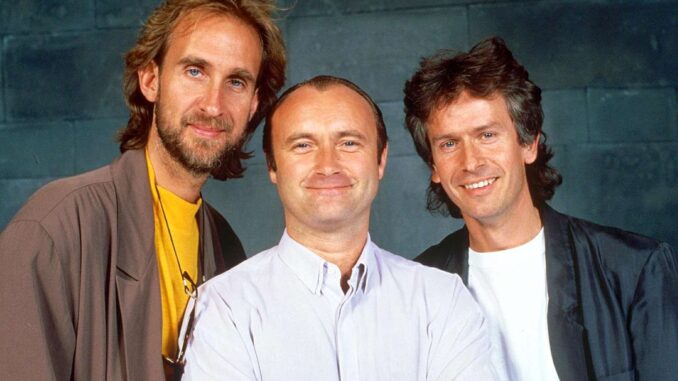Unraveling the Timeless Legacy of Genesis: A Comprehensive Exploration of the Band’s Revolutionary Transformation

Unraveling the Timeless Legacy of Genesis: A Comprehensive Exploration of the Band’s Revolutionary Transformation
Genesis, one of the most iconic and influential rock bands of all time, has left an indelible mark on the music world. With a career spanning over five decades, the band has undergone a remarkable evolution, navigating through various genres, styles, and lineups. In this article, we will embark on a fascinating journey to explore the legacy of Genesis, delving into the band’s groundbreaking transformation, and examining the factors that have contributed to their enduring impact on the music industry.
*The Early Years: Formation and Experimentation (1967-1970)*
Genesis was formed in 1967 at Charterhouse School in Godalming, Surrey, England. The original lineup consisted of Peter Gabriel (vocals, flute), Tony Banks (keyboards), Anthony Phillips (guitar), Mike Rutherford (bass, guitar), and Chris Stewart (drums). During their early years, the band experimented with various genres, including psychedelic rock, folk, and classical music. Their debut album, “From Genesis to Revelation,” was released in 1969, but it was their second album, “Trespass,” that showcased their unique blend of progressive rock and folk.
*The Peter Gabriel Era: Innovation and Theatricality (1970-1975)*
The early 1970s saw Genesis undergo a significant transformation with the arrival of drummer Phil Collins and the increasing dominance of Peter Gabriel’s creative vision. This period was marked by the release of several groundbreaking albums, including “Nursery Cryme,” “Foxtrot,” and “Selling England by the Pound.” Gabriel’s innovative and theatrical approach to music, which included elaborate costumes and storytelling, helped to establish Genesis as one of the leading progressive rock bands of the era.
*The Phil Collins Era: Commercial Success and Musical Evolution (1975-1996)*
Following Peter Gabriel’s departure in 1975, Phil Collins took over as the lead vocalist, and the band underwent a significant transformation. Genesis’s music became more commercial and radio-friendly, with hits like “Mama,” “That’s All,” and “Invisible Touch.” This period also saw the release of several successful albums, including “A Trick of the Tail,” “Wind & Wuthering,” and “Genesis.” Collins’s distinctive vocals and drumming style helped to propel Genesis to new heights of commercial success.
*The Post-Phil Collins Era: Experimentation and Reunion (1996-Present)*
After Phil Collins’s departure in 1996, Genesis went on hiatus, with the remaining members pursuing solo projects. In 2007, the band reunited with Phil Collins for the “Turn It On Again” tour, which featured a revised lineup and a reworked setlist. Although the reunion was met with enthusiasm from fans, it was short-lived, and the band has since been inactive. However, in recent years, there have been rumors of a potential reunion, which has sparked excitement among Genesis enthusiasts.
*The Legacy of Genesis: Influence, Innovation, and Enduring Impact*
Genesis’s influence on the music world cannot be overstated. The band’s innovative approach to progressive rock, which incorporated elements of classical music, folk, and theater, has inspired countless musicians and bands. Their music has also had a significant impact on popular culture, with songs like “Supper’s Ready” and “The Lamb Lies Down on Broadway” becoming iconic anthems of the 1970s. Genesis’s legacy extends beyond their music, as well, with the band’s theatrical and conceptual approach to live performances influencing the development of rock concerts and festivals.
*The Band Members’ Solo Careers and Collaborations*
In addition to their work with Genesis, the band members have pursued successful solo careers and collaborations. Peter Gabriel has released several critically acclaimed albums, including “So” and “Us,” and has become a prominent advocate for human rights and social justice. Phil Collins has had a successful solo career, with hits like “In the Air Tonight” and “Sussudio,” and has also collaborated with other artists, including Eric Clapton and Quincy Jones. Tony Banks, Mike Rutherford, and Steve Hackett have also released solo albums and collaborated with other musicians.
*Conclusion*
Genesis’s legacy is a testament to the band’s innovative spirit, creative vision, and enduring impact on the music world. From their early experimentation with progressive rock to their commercial success in the 1980s, Genesis has remained a beloved and influential force in the music industry. As we look back on their remarkable journey, we are reminded of the power of music to inspire, to innovate, and to transcend time and generations.









